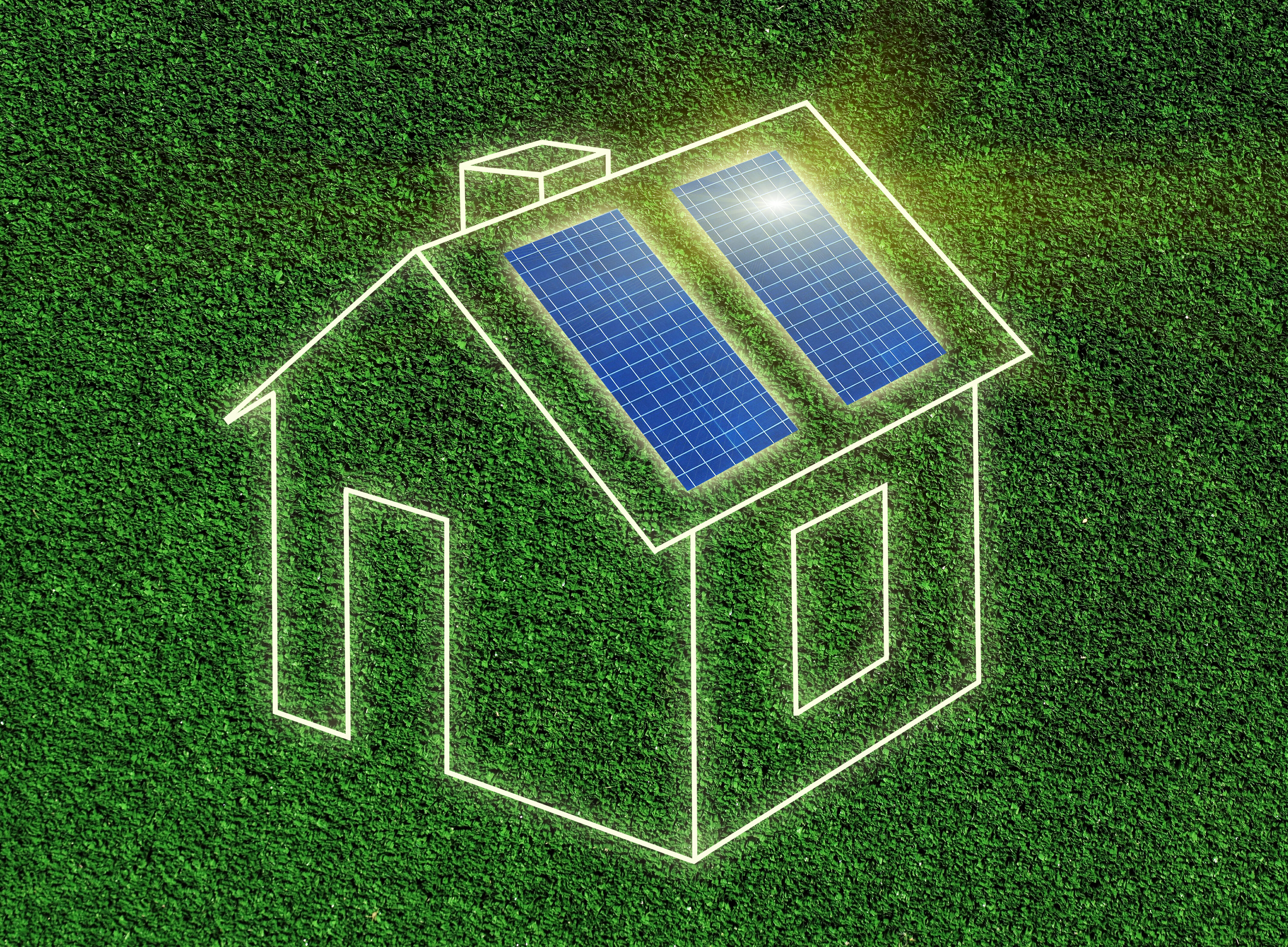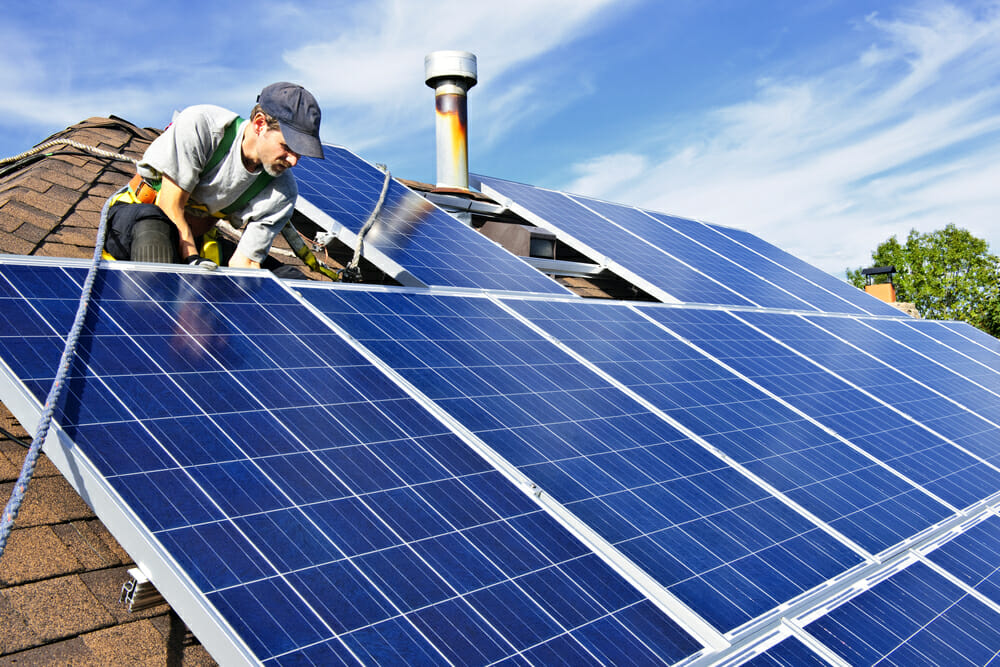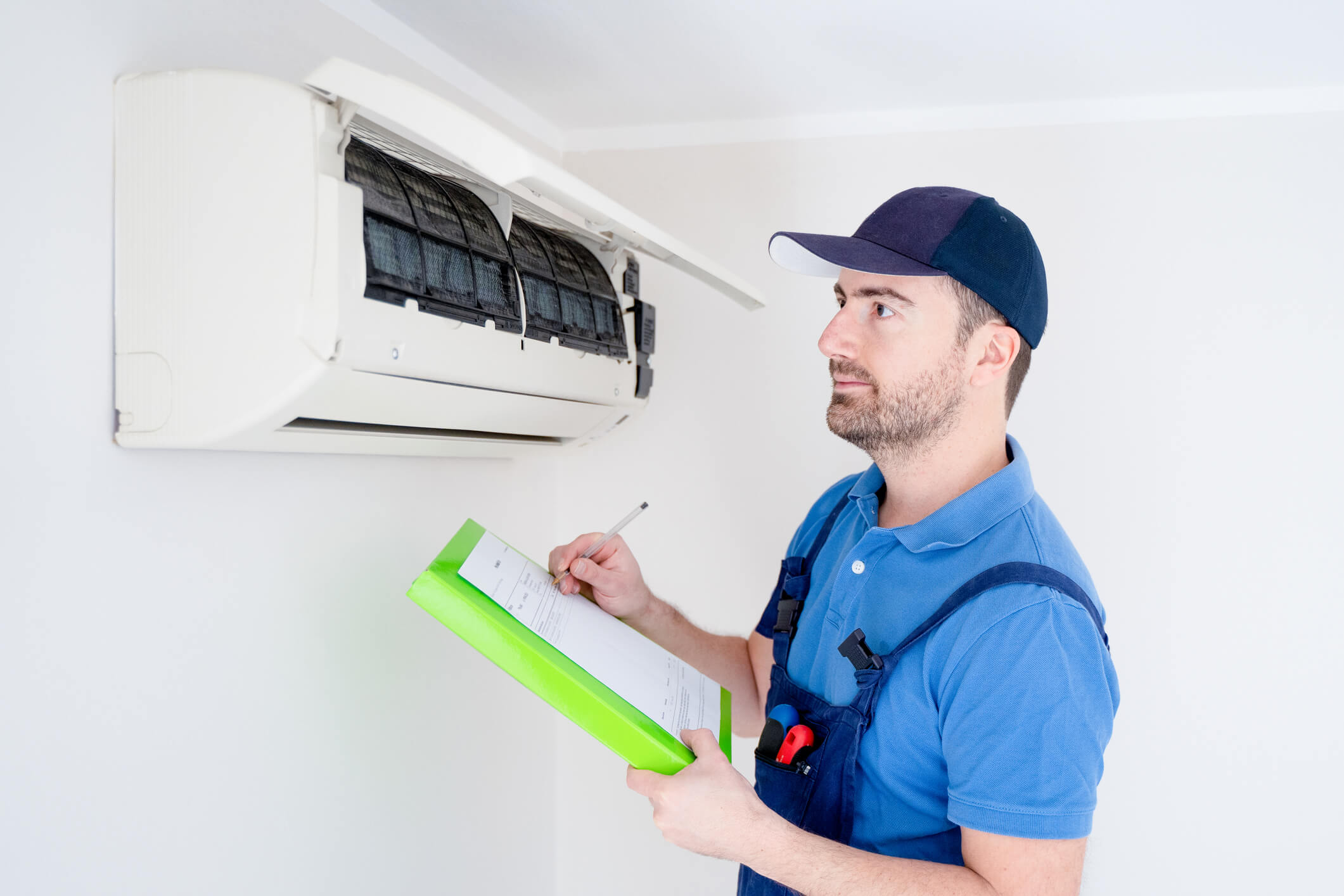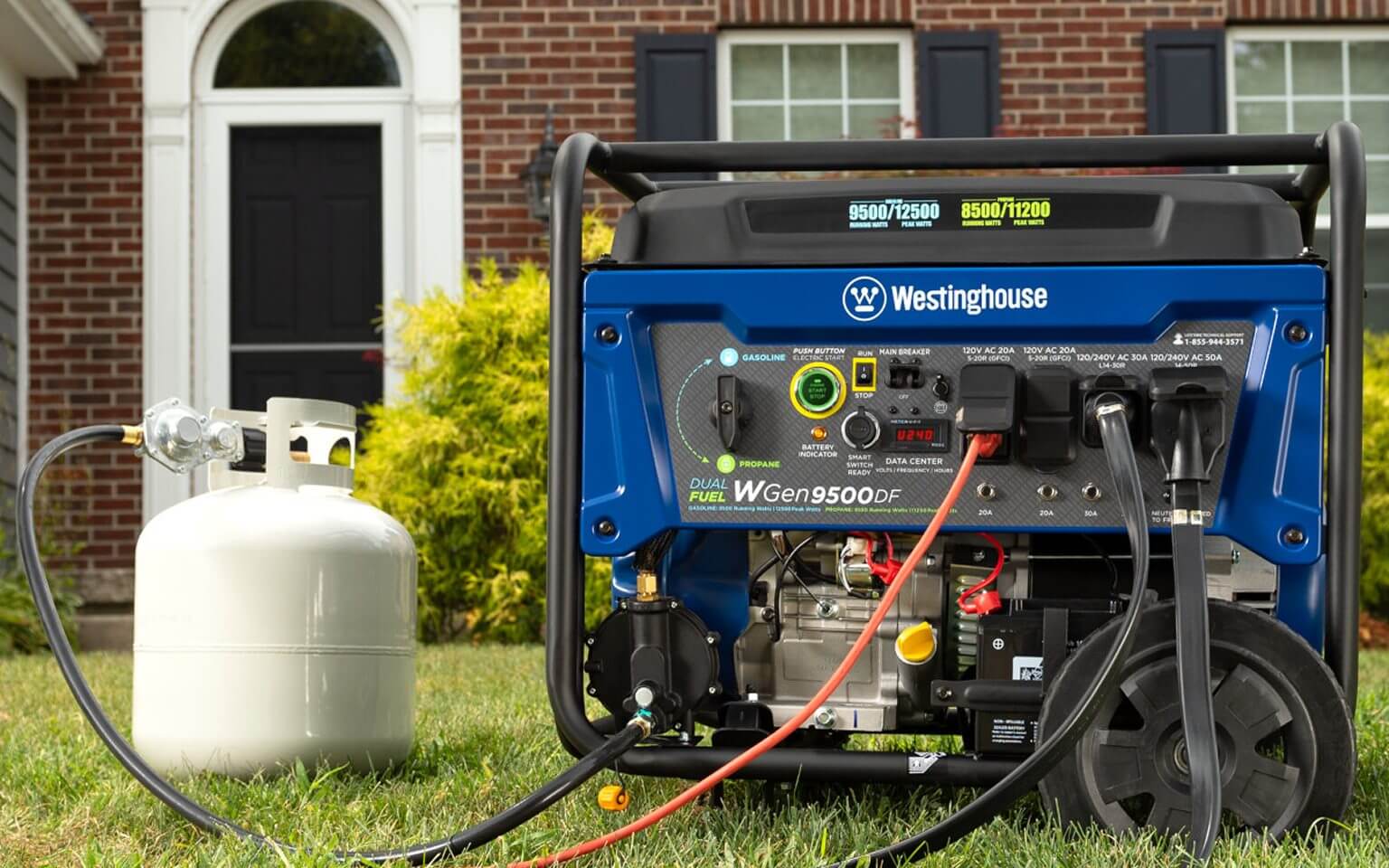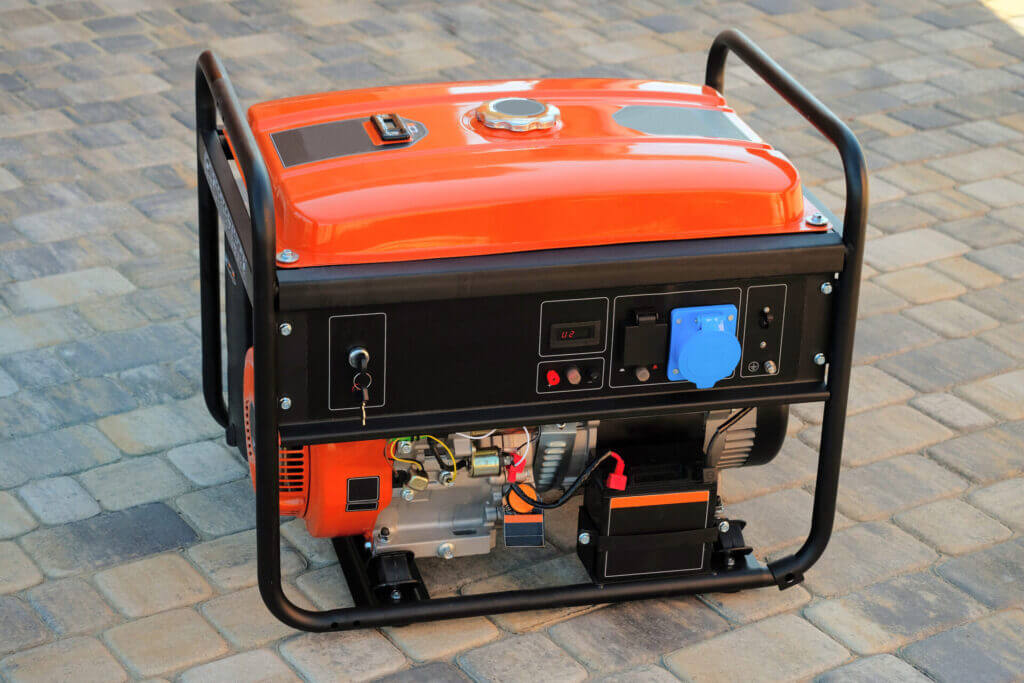Are you doing a solar project?
Modernize can pair you with three to four pros in your area, so you can compare options and save time and money.
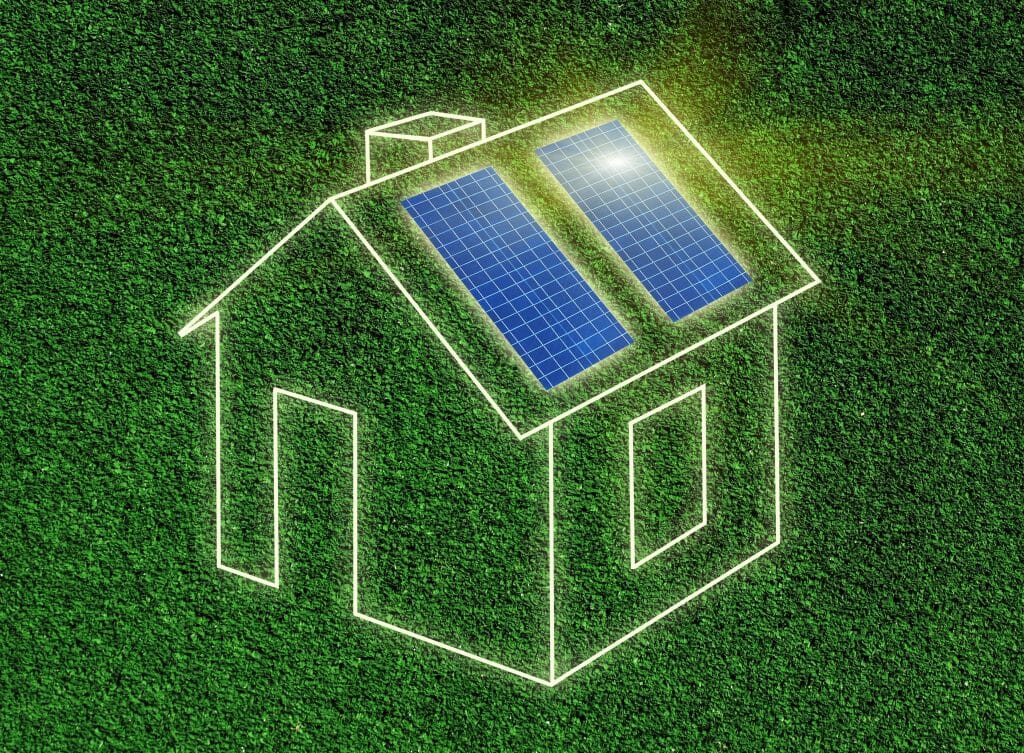
Minimizing your carbon footprint, increasing your home’s value, reducing your energy bill—there are countless reasons to make the switch to solar energy. And even though with increased solar rebates, you can recoup nearly your entire solar investment, purchasing solar panels still requires a considerable up-front cost. Before you make the switch to a solar-powered home, here are five important questions to ask yourself.
Is my home a good candidate for solar installation?
Before moving forward with installation, you need to confirm that your home is suitable for solar panels. There are three factors that will determine your home’s solar viability: roof structure, orientation, and shading.
Roof Structure: You need at least 300 to 400 square feet of clear roof space to accommodate the panels—preferably without skylight windows, pipes, or chimneys in the way.
Orientation: Roofs that face south, southeast, or southwest are the best candidates for solar panels. While some systems can be compatible with west- or east-facing roofs, they won’t produce as much energy. North-facing roofs are typically not feasible options.
Shading: Trees, neighboring homes, and other tall objects shouldn’t block sun exposure on your roof, especially between 9 a.m. and 3 p.m., which are peak hours for energy production. Roof shading will impact how much energy your solar array can produce.
Is the weather in my area conducive to solar energy?
Even if your home is a good candidate for solar installation, you also need to know how your climate will affect your energy production. Solar energy relies on the sun for its power: if you live in a cloudy or rainy geographic area, you won’t be able to produce as much energy.
Arizona, Colorado, Hawaii, Nevada, and New Mexico are the sunniest US states, while Alaska, New York, Oregon, Vermont, and Washington are the gloomiest. In comparison, Arizona clocks in 193 clear days each year, whereas Vermont and Washington see only 58.
If you live in an overcast state, you can still benefit from solar, but you may need to install more panels to make up for the dearth of sunlight. Keep in mind that if you live in a cloudier state, you’ll likely use less energy for air conditioning than sunnier states. Minimal solar production could still balance out the costs.
Which type of solar do I want?
There are several types and styles of solar from which you can choose.
Mounted: The most popular are mounted roof solar panels composed of monocrystalline or polycrystalline silicon. Monocrystalline solar panels have the highest efficiency rates and last the longest, but they are also the most expensive, making polycrystalline a more popular option. Thin film solar cells are also popular for their low cost and portability, but they are not nearly as efficient, and they have a shorter shelf life.
Movable: Movable solar panels, also known as trackers, are an alternative to mounted panels. Although significantly more expensive than mounted panels, trackers can produce more power since they move to “track” the path of the sun. Not all solar companies offer trackers, so you will need to discuss this option with each solar company.
Find the Right Contractor for Your Solar Project
Whether you’re ready to begin your project now or need some expert advice, our network of contractors are here to help. With a few simple questions, we’ll find the best local professionals for you
Shingles: Besides panels, there are also solar shingles. While they don’t produce as much energy as panels—and they can be pricey—they are a more discreet option if you don’t like the look of roof panels or aren’t ready to commit to large panels.
How should I pay for my solar panels?
There are three ways to pay for solar panels—cash, loan, or lease.
Cash: Cash is the simplest option. You pay the solar company for the entire cost of your home’s solar system. As solar systems cost anywhere between $15,000 and $45,000, you should calculate installation costs to see if investing this much upfront is a feasible option.
Loan: If you can’t afford to purchase a solar system in cash but still want to take advantage of the tax benefits, you can take out a loan—often with the solar company itself. You can pay a small down payment upfront and a monthly loan repayment fee.
Lease: You can also choose to lease your solar panels. In this case, the solar company owns the solar panels and you pay for the produced energy. You can save monthly on your energy bill without putting down a large investment, but you won’t be eligible for tax rebates.
What are the solar rebates and energy policies in my state?
The state in which you live affects how much you can save on a solar energy system, how difficult it is to connect to an energy grid, and how you’ll be compensated for the energy produced.
Other than the Federal Residential Renewable Energy Tax Credit, several states offer rewards programs and rebates, including California’s Solar Initiative, Colorado’s Energy Smart Renewable Energy Rebate Program, New York’s Residential Solar Sales Tax Exemption, and Texas’ SMART Source Solar PV Rebate Program.
States also have their own energy policies, including net metering (the compensation you receive for the surplus energy you create) and interconnection (the technical protocols involved in hooking up your solar panels to the grid). Alabama, Georgia, Idaho, Oklahoma, and Tennessee received an “F” grade for renewable energy legislation and net metering, whereas California, Massachusetts, Ohio, Oregon, and Utah received “A” ratings.
After addressing these questions and establishing that solar is the right route for you to take, it’s time to hunt for a local solar company that meets your needs. Once your solar panels are in place, enjoy your low power bill and badge of sustainability.
This guest post was written by by Clair Jones, an alternative energy specialist from SolarPowerAuthority.com.
Find the Right Contractor for Your Solar Project
Whether you’re ready to begin your project now or need some expert advice, our network of contractors are here to help. With a few simple questions, we’ll find the best local professionals for you
Reviews from Real Homeowners
Welcome to Homeowner Resources! We are the Modernize blog. Modernize pairs more than 3 million homeowners a year with pre-vetted contractors in their area. This blog started because we believe homeowners should know everything about their homes, from how their HVAC works to which front door colors they might love. On Homeowner Resources, you can find information on every part of your home, right down to how you can negotiate with contractors to get the best price. Here's more about the blog.
Need a contractor? Learn more about how Modernize finds the right pro for you.
